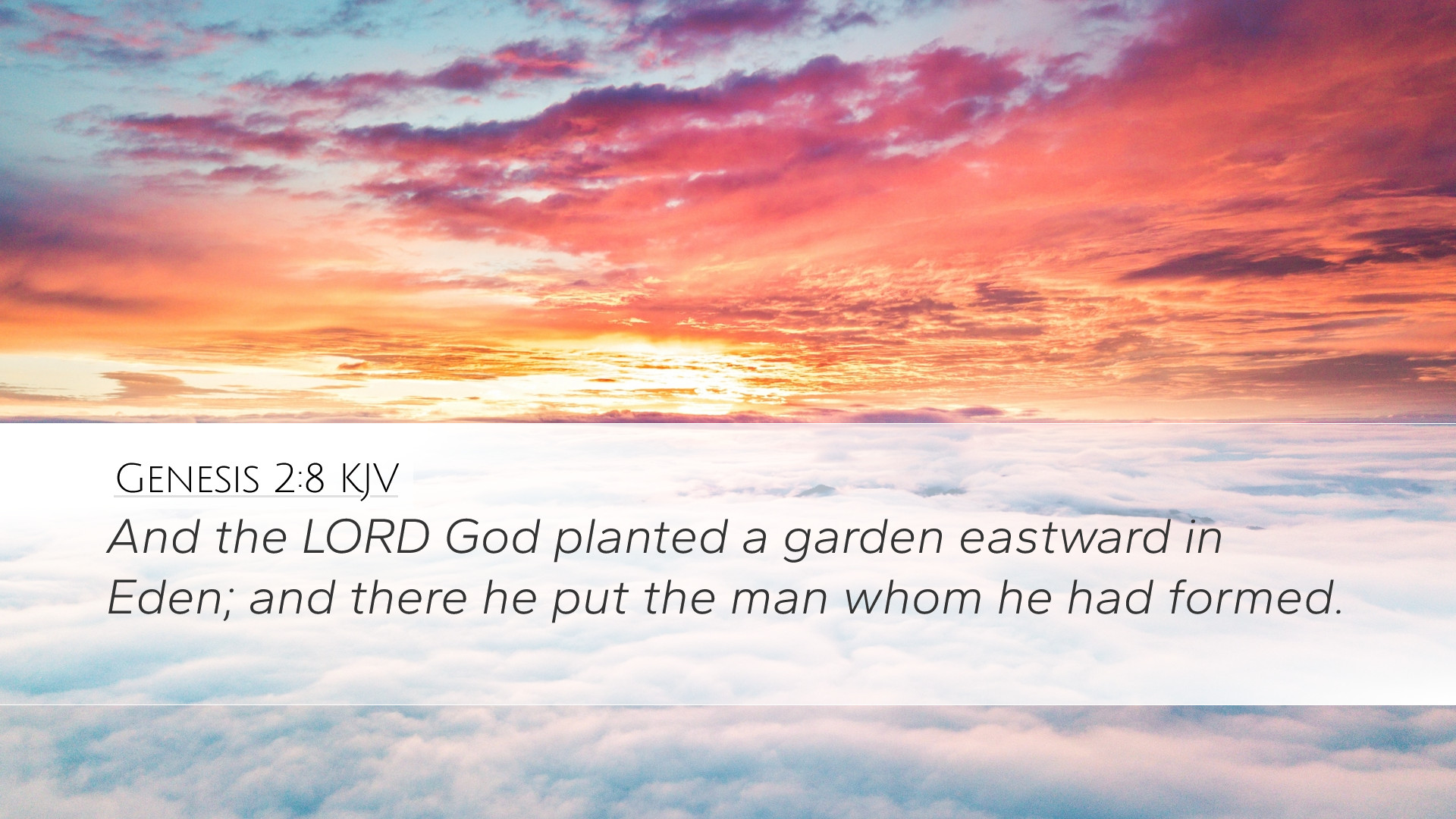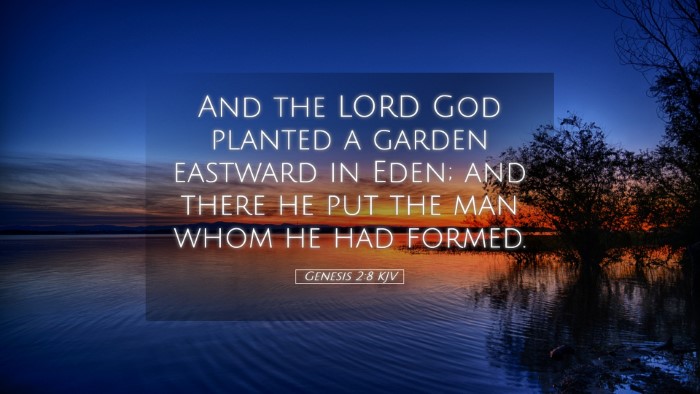Genesis 2:8 - Commentary
Bible Verse: "And the Lord God planted a garden eastward in Eden; and there he put the man whom he had formed."
Context and Significance
Genesis 2:8 serves as a pivotal scripture that introduces the sacred garden of Eden, highlighting God's creative power and His intention for humanity. This verse occurs in the second chapter of Genesis, which presents a more detailed account of the creation of man and his relationship with God. The emphasis on Eden represents not just a geographical location but a symbol of divine presence and paradise.
Commentary Insights
This insightful passage has been analyzed by various public domain commentators, each contributing unique perspectives. Below are summaries from key commentaries:
Matthew Henry’s Commentary
Matthew Henry emphasizes that the garden of Eden was a special place, prepared by God for man. The term "planted" indicates intentionality; God did not create the garden by mere chance but through His providence. Eden is portrayed as a splendid abode for Adam, filled with the riches of divine creation. According to Henry, the mention of "eastward" could signify a place of preference, denoting spiritual significance and implying proximity to divine blessings.
- Theological Implications: Henry posits that the garden represents the ideal state of creation where God intends for man to dwell in harmony with the Creator.
- Role of Man: The phrase "there he put the man" suggests that humanity has a designated place within God's creation, reflecting God’s plan and purpose.
Albert Barnes’ Commentary
Albert Barnes provides a thorough analysis of the original Hebrew terms used in this verse. He underlines the meaning of "Eden" as a place of pleasure and delight. In Barnes' view, the act of God planting the garden serves as a metaphor for the nurturing care God extends to humanity. Moreover, he asserts that the garden's location signifies its importance in the landscape of creation.
- Imagery of Abundance: Barnes notes that the garden is filled with trees that bear fruit, representing spiritual sustenance for Adam. This also foreshadows the importance of obedience to God's commands.
- Divine Provision: The placement of man in Eden illustrates God’s provision and the abundant life He desires for humanity.
Adam Clarke’s Commentary
Adam Clarke offers a rich examination of the word "Eden," associating it with pleasure and enjoyment. He suggests that the garden should be viewed not merely as a physical location but as a spiritual reality. Clarke elaborates on the significance of God taking the initiative to create such a place for Adam, highlighting the implications of divine favor towards humanity.
- Symbolic Representation: Clarke views Eden as a foreshadowing of eternal life and fellowship with God, portraying humanity's original state before the Fall.
- God’s Relationship with Man: The act of placing man in Eden signifies a covenant relationship, where man is to tend and keep God's creation.
Theological Reflections
As we reflect on Genesis 2:8, several theological insights emerge that hold significance for pastors, students, and theologians:
- Creation and Providence: This verse underscores God's active role in creation, signifying His desire for relationship with humanity through the provision of a perfect environment.
- Human Purpose: The placement of Adam in Eden calls attention to the concept of stewardship, where human beings are entrusted with the care of God's creation.
- Restoration Themes: The imagery of Eden resonates with New Testament themes of redemption and restoration in Christ, foreshadowing the ultimate fulfillment of God's kingdom.
Conclusion
Genesis 2:8 encapsulates profound themes of creation, purpose, and divine care. The collective insights from Matthew Henry, Albert Barnes, and Adam Clarke add depth to our understanding of this foundational scripture. By exploring the nuances of God's intention in placing man in Eden, we are reminded of the ongoing divine desire for humanity to dwell in fellowship with Him, both in this life and in eternity.


